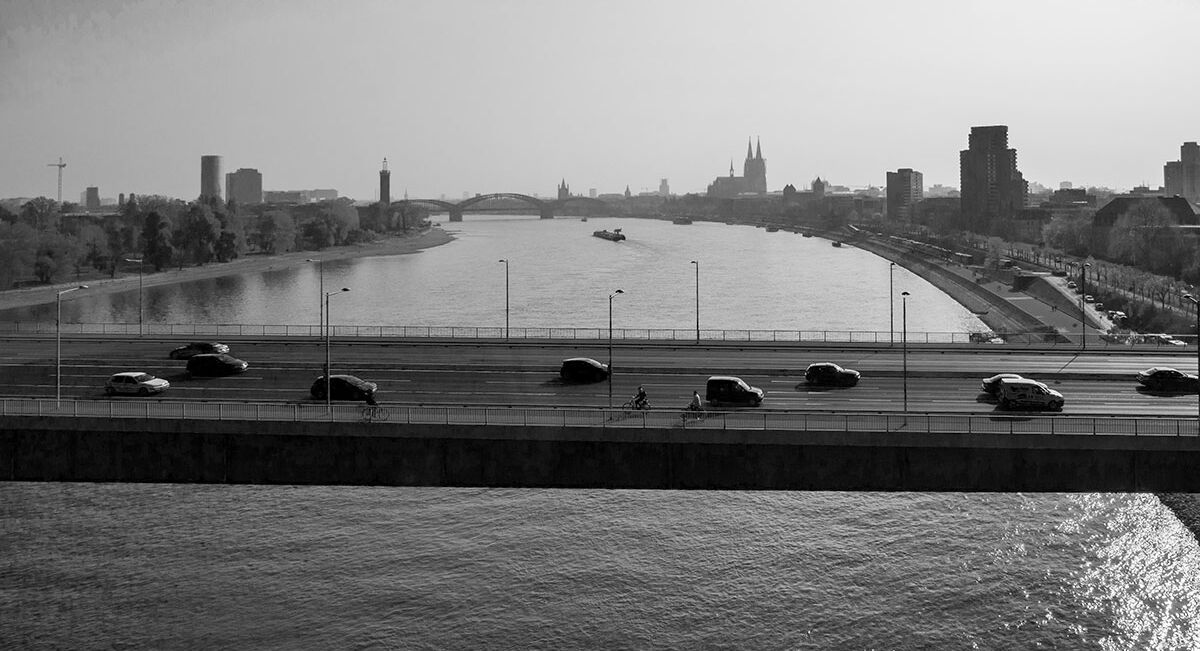Traffic Center North Rhine-Westphalia (TC NRW)
Traffic management with 21 sub-centers in NRW

Since 2013 the Traffic Control Center North Rhine-Westphalia (TC NRW) in Leverkusen has been responsible for traffic management tasks in the state of North Rhine-Westphalia. The TC NRW collects information from 21 sub-centers.
As a central data pool for all traffic data, it also acts as a source for mass data (interval-related traffic data), individual data, axle load data and hourly values. The latter are processed for selected sites for the Federal Highway Research Institute (BASt).
The sub-centers control a total of 36 directional traffic control systems for harmonizing traffic and providing congestion warnings, 108 ramp metering systems for the regulation of traffic flow at junctions, and congestion warning systems for control and information purposes.
All collected traffic data is used in parallel to generate traffic reports for identified message-worthy situations, which are broadcasted via radio and the RDS/TMC channel.
A web-based graphical user interface allows access to all systems and all data to ensure the operation of the traffic control center. It is possible to gain access to all data and traffic-related infrastructures from all locations in the computer network of traffic centers and sub-centers.
There are eight parallel workstations in the traffic center. All accruing data is stored platform-independently for long-term access. To support operational tasks, the recorded and long-term stored data can be evaluated according to traffic-related criteria. Past measures can be traced at any time through the evaluations and logs. This enables the continuous optimization of traffic management.

